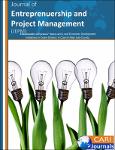Functionality of Farmers’ Stores and Local Economic Development Initiatives in Oyam District: A Case of Aber Sub-County
Abstract
Purpose: This study examined the relationship between the functionality of farmers’ stores and LED initiatives. Specifically, the study determined the effect of farmers’ stores functionality on resource mobilisation; assessed the contribution of farmers’ stores functionality on resource management; and assessed the effect of farmers’ stores functionality on resource utilisation.
Methodology: The study adopted a cross-sectional study design, which employed a mixed methods approach of both quantitative and qualitative methods. The study population consisted of 322 respondents, which involved both political leaders and civil servants of Aber Sub County in addition to members of the farmers’ groups. Both the Simple random sampling technique and purposive sampling technique were used to select a sample of 177 participants. The researcher adopted Self-Administered Questionnaires to collect quantitative data and an interview guide to collect qualitative data. Both descriptive statistics (mean, and standard deviation), and inferential statistics (correlation and regression) were used to analyse numerical data. Content analysis was used to analyse qualitative data.
Findings: The findings revealed a statistically significant positive relationship between functionality of farmers’ stores and LED initiatives. The functionality of farmers’ stores yielded a significant effect on resource mobilisation, resource management and resource utilisation. It was concluded that the functionality of farmers’ stores significantly affects LED initiatives in Aber Sub County, Oyam district.
Unique Contributions to Theory, Policy and Practice: It is recommended that the production and agricultural department of Oyam district local government strengthens the capacity of farmer groups by training them on activities such as value addition and financial management so that they can be in position to mobilise more financial resources. This study contributes an original and empirical-evidence of the functionality of farmers’ stores towards LED initiatives in Uganda.
Collections
- Research Articles [143]

